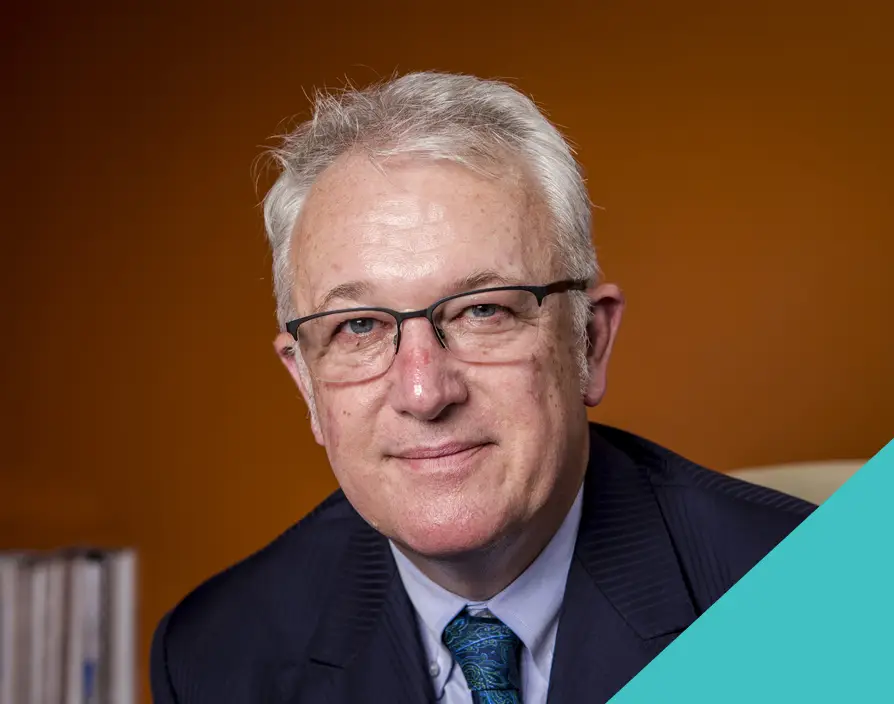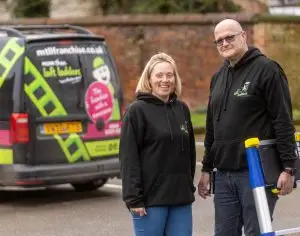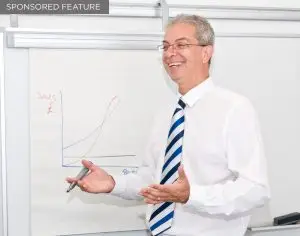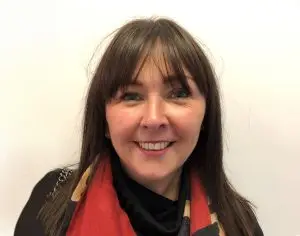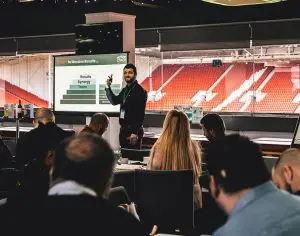Spend much time in the company of Nigel Toplis, managing director of The Bardon Group, the multi-brand franchise company that owns Recognition Express, ComputerXplorers, Kall Kwik and techclean, and you’ll quickly notice how fiercely he fights for the interests of franchising. “We have around 20,000 business people out there that are franchisees,” he says. “And yet if you were to ask politicians about franchising, they would look at you agog: you can’t get government at any level to take you seriously.” Quoting recent bfa figures reporting that 95% of franchises succeed while four out of five startups fail, Toplis feels the amount of energy and capital the government sinks into supporting startups is insane, especially when there exists a model that could offer far better returns for the economy as a whole. “I’m not saying franchising is perfect,” he says. “But by god you’ve got something that bloody works. Make use of it.”
Given his experience in the sector, it’s hardly surprising Toplis is such an ardent supporter of the industry’s interests. Born, raised and educated in Singapore, he moved to the UK in 1976 and, after completing a higher national diploma in business studies, he took a job at Allied Breweries in Burton on Trent. “In the 1980s, the brewery companies were looking to create pubs that would attract certain types of people, so some would have food, some would have children’s areas, some would have loud music,” says Toplis. “I became a bit of an expert in doing the demographic profiling for that.” After helping to create different style of pubs around the country, in 1982 Toplis was moved into the food and catering brand that was created when Allied Breweries merged with J. Lyons & Co, the restaurant, food manufacturing and hotel conglomerate. This saw him setting up brasseries, cafes and even a tapas operation. “You could go to Spain, find out what they do, come back here and set something up,” Toplis says. “It was fabulous: we even had Fay Maschler come down and do a review.”
Following this, in 1984, Toplis was headhunted by Ladbrokes to help the gambling company develop new styles of betting shop. “It was still very much governed by legal restrictions in those days but it was starting to open up a little bit,” he says. Not only did Toplis play a role in creating new shops but he also went on to help it run lots of its premium lines such as football-information service ClubCall and a horoscopes line with astrologer Russell Grant. During one meeting around the Grand National, he was also part of the team that came up with a new type of bet that was guaranteed to get punters itching to get down the bookies. “Basically what it allowed us to do was guarantee a £1m payout,” he says. “Now back in the 1980s, obviously a £1m was a lot of wedge.”
Without a doubt, these experiences have given Toplis a real appreciation of how businesses can benefit from encouraging an entrepreneurial mindset among employees. “While Allied Breweries and Ladbrokes were huge conglomerates, in the day they were very go ahead companies,” he says. “They always allowed you to make a decision if you thought it was right for the business and they were fairly open to entrepreneurial ideas.” Being given so much agency at a relatively tender age is certainly something that has stuck with Toplis and this is a spirit he has attempted to enshrine in all of his endeavours since. “Neither company was afraid to give young people their head,” he says. “And I’ve tried to adopt mentality within the companies we’ve got here, bringing young people through and saying ‘listen, at the end of the day, this will be your business so you’ve got to want to run it’.”
Despite this openness to innovation, in 1993 Ladbrokes decided it was time to divest some of the operations Toplis had been working on to focus more on core operations. “I tried to buy it but my boss beat me to it and so therefore I left,” he says. “It’s just one of those things: you can only make one bid, can’t you?”
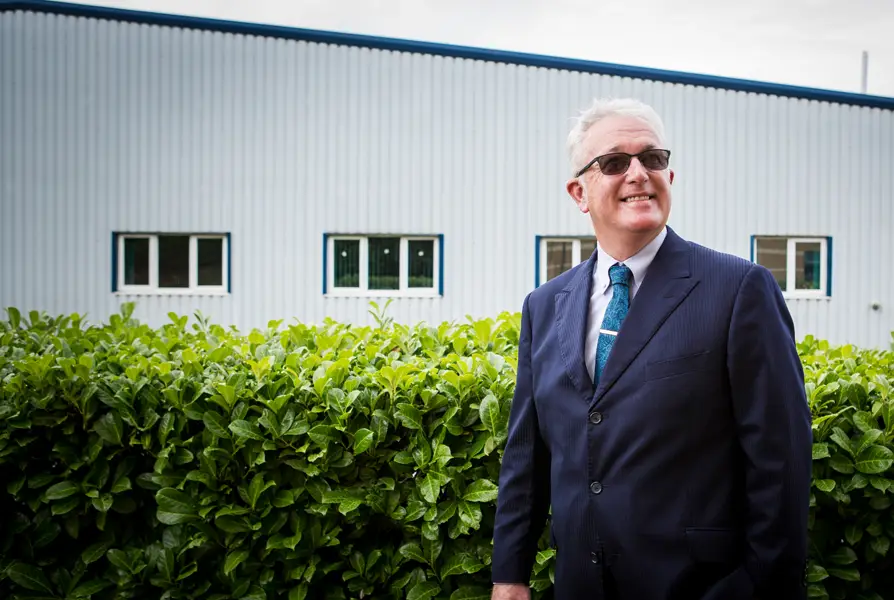
After a brief stint running his own business, Toplis was headhunted as marketing controller for Kall Kwik, the design and print franchise. And this proved to be a fortuitous move: not only did it give him his first real taste of franchising but it also saw him taken under the wing of Moshe Gerstenhaber, the company’s Israeli founder who had brought the brand to Britain in 1979. “He was a very tough taskmaster but he would teach you everything,” Toplis says. “When I came into the business, I spent a lot of time with Moshe learning what franchising is all about.” Under Gerstenhaber’s tutelage, Toplis learned many of the values that would later come to define his franchises. “Moshe once said to me: ‘the franchisor should want the franchisee to succeed more than the franchisee themselves’,” he says. “I learned that franchising is about the relationship between franchisor and franchisee: it’s about nothing else.”
Thanks to the grounding Gerstenhaber gave him, Toplis rose through the ranks at Kall Kwik, becoming marketing and eventually managing director. This meant that when the business was acquired by Irish print brand Adare in 2000, the task of merging Kall Kwik with its existing asset Pronta Print fell squarely on Toplis’s shoulders. “That was quite delicate because you had to try to keep the brands separate but the back of house together,” he says.
By 2002, Toplis felt that the time was right to take on something new and he found Recognition Express, a franchise operating in a similar sector, was looking for somebody to step in and take the reins. “The owner of the business at the time had been diagnosed with terminal cancer and he wanted someone to come and take over the company,” he says. When Toplis finally entered the role in 2003, Recognition Express had a strong network of nearly 20 franchisees but he could see opportunities for the brand that extended far beyond its narrow focus on badge making. “We re-engineered the business completely,” he says. “We’ve gone from 95% badge making and being a manufacturer to now very much being a marketing-and-sales-led, customer-centric business in three major sectors: badges, promotional products and business clothing.”
And as this refined model began to bring Recognition Express increasing levels of success, Toplis started to acquire other brands that he felt had a similar ethos. “We bought into ComputerXplorers, which is an education franchise,” he says. “Then in 2011, Kall Kwik was going into administration so we bought it and brought it back into the fold; it was like a return to destiny.” And for Toplis, it hasn’t been hard to identify the right kinds of brands to add to the portfolio. Early on he ruled out franchises in sectors like food service and care – reasoning it takes a very special skill set to secure success in those verticals. But there is a common thread that runs through the franchises he has bought into, even recent acquisition techclean, which he picked up in July 2016. “People will say to me that our brands are all disparate but they’re actually all business-to-business; they may be selling different products and services but actually the ethos behind them remains the same,” Toplis says. “Business is about people: it’s about communication and building that rapport.”
United under the banner of The Bardon Group – which takes its name from the home of its Leicestershire headquarters – these brands have evolved as much as Recognition Express before them, particularly in the area of the kinds of franchisees they seek. “When you’re starting off in franchising, you tend to recruit people who have money: it’s as crude as that,” says Toplis. “You have no other way of making the assessment.” Fortunately with time, The Bardon Group has become more selective about the franchisees it welcomes on board, focusing on quality rather than quantity. “What I want is good people: I want people who are going to follow the system, be participative and work with other franchisees,” he says. “We don’t make a bunch of money by appointing a franchisee: we make much more if that franchisee is lasting and ever-growing.”
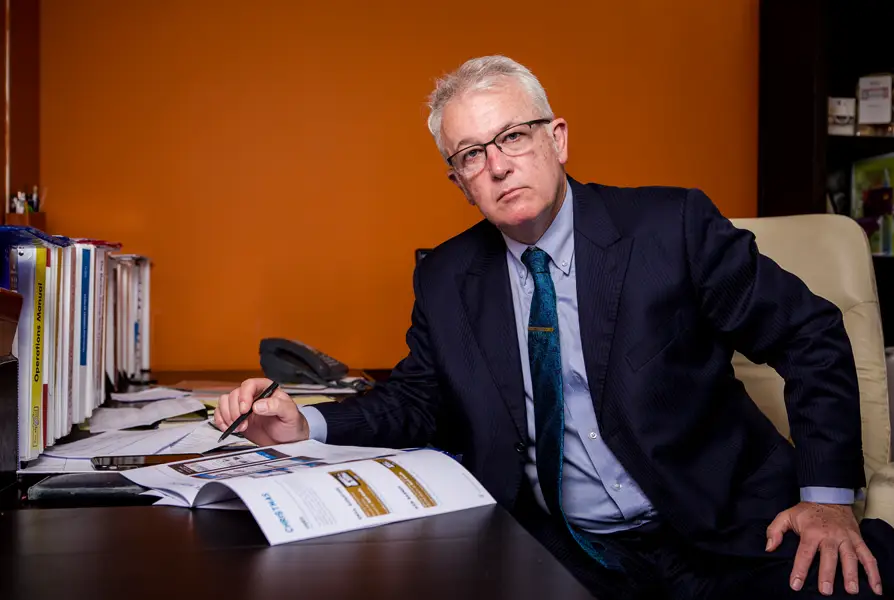
Inevitably, the training provided for The Bardon Group franchisees can vary significantly from brand to brand but there are still some common factors, regardless of the franchise that a franchisee buys into. “There’s always some training at head office, some that involves existing franchisees and a marketing launch programme,” says Toplis. The head-office training could range anywhere from one to six days and after that newcomers will spend some time with existing members of the network learning about specific elements of the business, whether that’s sales, operations or more hands-on skills training. Finally the marketing launch could take anywhere from six to 15 months but one thing all of the marketing programmes share is that the cost is included in the franchise fee. “Primarily the reason for that is we know how important it is to market the business and we know if we make it part of the initial marketing fee, it will get done,” says Toplis.
Given Toplis’s dedication both to franchisees and the wider community, it won’t be much of a surprise to hear that in 2008 he was invited to become the chairman of the bfa for two years, something he feels was a real honour and that taught him a great deal about the ins and outs of the organisation. “The bfa is an interesting animal,” he says. “It is the guardian of British franchising, the head quarters of the accreditation service and works very hard on the international scene with European, American and Australian counterparts.” However, Toplis doesn’t feel that the responsibility for championing the industry’s interests lies on the association’s shoulders alone and he believes there are certain things that the community itself can do more of. “It’s a shame that people who were very senior in franchising but now work outside of the industry are not used more as ambassadors to spread the word,” he says. “We do very little with universities, colleges and schools. And frankly we could be doing a lot more to engage government both at a national and a local level.”
This is partly why Toplis has dedicated so much of his time to acting as an evangelist for the industry, not only writing articles for the press but also penning three books on the subject. “Writing books is partly vanity, partly interest, partly because I think they make a difference,” he says. On top of this, Toplis has also made it his mission to help franchising achieve a higher place on the academic agenda and lectures at Lancaster University. However, he still feels there is more that can be done and doesn’t shy away from throwing down the guantlet to any university interested in having a franchise on its campus. “I’ll give you one of my franchises free,” says Toplis. “But here’s the deal: you need to be the franchisee. You as the college. And you put students in charge, let them run it as a business for a year and take out a profit share.”
But academia isn’t the only area in which Toplis is committed to giving something back. Over the last 15 years he has engaged in multiple charity treks to raise money for Well Child, the charity for seriously ill children, although he notes it began more by accident than design. “Beware of agreeing to anything when you go to a party and get drunk, that’s what I say,” he quips. At a party he had thrown, John Pratt, partner at Hamilton Pratt, the franchise law firm, approached Toplis and suggested they cycle round Cuba together to raise money for the charity. Years after their successful cycle ride, Well Child approached Toplis and asked if he fancied climbing Kilimanjaro: trips across the Sahara and Sumatra followed. And in a matter of weeks he is set to cycle from Saigon to Angkor Wat for what he anticipates will be his last hurrah. “I don’t want to go on water or where it’s cold and with due respect, I’ve spent plenty of time in jungles and deserts where you’ve had to dig your own toilets,” Toplis says. “So that’s it: this will probably be my last challenge. No water, no cold but plenty of porcelain.”
And in his defence Toplis still has his hands full with his franchise. While The Bardon Group now has 104 franchisees across its four brands and franchise sales of more than £20m, he still has some grand plans for the future. “I would like to add at least one more brand to the portfolio: I had one that I thought we had a change of getting but it didn’t materialise,” he says. Additionally, as well as continuing to help franchisees prosper and grow, Toplis is keen that eventually that those working within The Bardon Group will eventually be in a position to take over and run the business for themselves. “That would be the ideal scenario,” he says. “Not necessarily tomorrow afternoon but some time in the future.”
Asked whether he has any other personal ambitions, Toplis is uncharacteristically non-committal. “It’s very difficult to have a certain ambition and then meet that ambition,” he says. “Circumstances change.” Many of the biggest steps he has taken in his life, whether that’s building a thriving franchising empire or camping down beneath a frosty Saharan sky, have happened not because of meticulous planning but because he was able to seize upon circumstances when they were favourable. “I’m the sort of person who likes to take opportunities when they present themselves,” he concludes. “So at the moment good health would be my only ambition. The rest we can take care of when it arises.” ![]()
